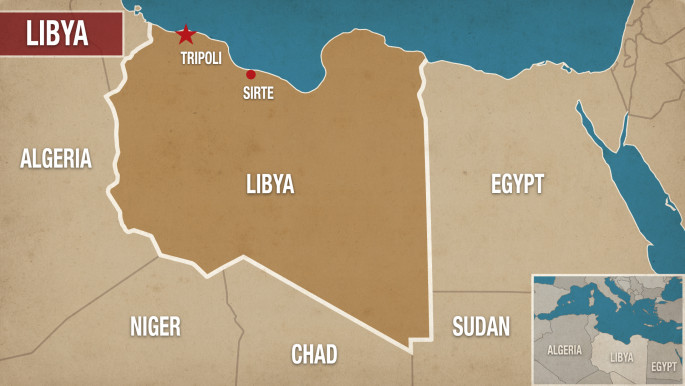Islamic State facing 'imminent defeat' in Libya's Sirte
Libyan Forces are poised to retake the the city of Sirte from Islamic State group fighters after six months of fighting.
Remaining IS militants in the city are positioned in a small area measuring 0.4km in the Giza neighbourhood, US and Libyan officials say.
Losing Sirte will constitute a blow to IS and will deprive it of a foothold outside Syria and Iraq, where current campaigns against the extremist group are advancing on Raqqa and Mosul. The loss of such a territory could inhibit recruitment drives.
At least 660 Libyan fighters have been killed battling IS in Sirte in the last six months, and a further 3,000 wounded.
IS have held out longer than expected in the city with airstrikes often proving of limited effectiveness when front lines are so close.
The fact that an estimated 400 IS fighters have escaped from Sirte over the course of the assault has also enabled the group to consequently launch attacks from behind the front lines with increasingly sophisticated bombs, catching Libyan forces unaware, inflicting casualties in the process.
A variety of factions make up Libyan forces battling IS in Sirte with concern that the defeat of the extremist group in the city could consequently lead to infighting, something that is also feared with relation to Iraqi forces fighting in Mosul.
Animosity is evident between prime-minister designate Fayez al-Sarraj who heads the UN-backed government based in Tripoli and military strongman Khalifa Haftar whose forces notably seized a number of oil ports in the country in September.
 |
|
| [Click to enlarge] |
Black flags over Sirte
IS took control of Sirte in 2015, with the coastal city — Muammar Gaddafi’s former hometown —becoming its main base in North Africa.
As in Iraq and Syria IS imposed austere and spartan laws of conduct on civilians under its rule in Sirte, including prohibitions on smoking, forcing women to wear the niqab; staging public floggings and crucifixions, and enslaving migrant women.
A coalition of troops from the nearby city of Misrata, and the UN-backed government in Tripoli joined forces launching a military offensive to recapture Sirte in May.
Hundreds of US airstrikes and helicopter raids have assisted the movements of Libyan forces on the ground in Sirte, with IS militants remaining in the Giza neighbourhood reliant on tunnels, booby traps, snipers, and sand-filled fridges to ward off advances.
"We hear them at night shouting to us, telling us they are coming for us," said Asruf el Qat, a student fighting in the rubble of Ghiza's many collapsed villas, speaking to Reuters.
"It's snipers, and landmines. We advance, they throw grenades. It's a dirty war."
Baghdadi’s call to arms
Early in November IS leader Abu Bakr al-Baghdadi called on jihadists to travel to Libya — Tunisian, Sudanese, and Egyptian fighters have all been present in IS ranks in Sirte — however Libyan forces appear set to retake the city imminently, with such calls likely to have been in vain.
"Sirte was supposed to be a fallback from Iraq and Syria. That's now gone," said Geoff Porter at North Africa Risk Consulting speaking to Reuters.
"Strategically, the Islamic State could point to Sirte and tell its followers that it really was global and growing. It can't do that anymore."
Sirte currently stands in a state of utter disrepair, with little life evident in a city previously home to 80,000 people.
According to intelligence officials from Misrata as many as 2,500 IS militants were present at one stage in Sirte.
Libyan forces battling against the extremist group are mostly made up of civilians who fought against Gaddafi and include students, mechanics, in addition to former army officers.





 Follow the Middle East's top stories in English at The New Arab on Google News
Follow the Middle East's top stories in English at The New Arab on Google News
![Israeli forces ordered bombed Gaza's Jabalia, ordering residents to leave [Getty]](/sites/default/files/styles/image_330x185/public/2176418030.jpeg?h=a5f2f23a&itok=_YGZaP1z)

